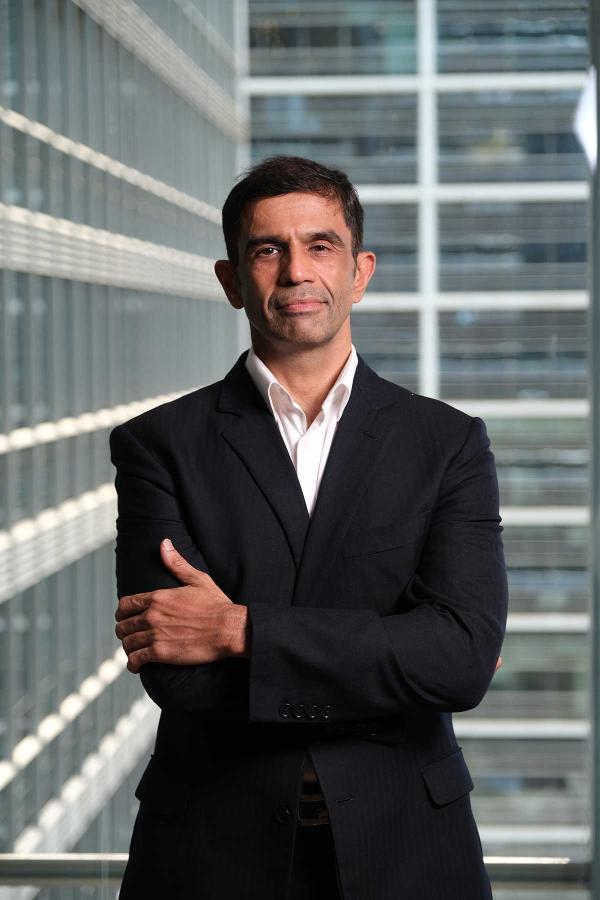Rice is a major source of carbon emissions, because of the way it’s grown. A private equity-backed Indian company has developed sustainable varieties that require less water, cutting carbon emissions, and boosting yields and incomes for farmers
Changing monsoon patterns in India are wreaking havoc on one of the country’s most important agricultural commodities: rice. While Central and Southern India have seen excess rain in recent months with flooding in the Southern states of Kerala, Karnataka and Madhya Pradesh, states in the East and Northeast of the country, such as Uttar Pradesh, Bihar and Odisha, have seen high temperatures and too little rain. As a result, India’s ministry of agriculture expects this season’s rice harvest to fall by around 6.77 million tonnes to 104.99 million.
New seeds and improved growing techniques developed by Hyderabad-based Seedworks, however, are making a difference. “Many crops in India have been decimated by heat waves this year,” says Sundar Raja Vadlamani, supply chain president at Seedworks. “Our company engineers characteristics that make plants more resilient to extreme heat and with much greater yields.”
Damaged by drought, floods, salinity and extreme temperatures, rice production is a victim of climate change. But it’s also a major contributor, accounting for about 2.5% of all human-induced greenhouse gas emissions, on a par with the global aviation industry. The staple crop’s hefty impact on the climate comes mainly from the way it is traditionally grown. Its flooded fields, called paddies, create ideal conditions for bacteria that emit methane, a potent greenhouse gas.
Rice varieties developed by Seedworks require less water, an increasingly scarce resource in India where as many as 600 million people face high to extreme water stress. Combined with new techniques, which it trains farmers to use, the result is a more sustainable crop with a lower climate impact.
The company estimates it has helped save about 14 billion litres of water so far, by combining its less thirsty rice varieties with a number of water conservation initiatives, including the use of water meters and rainwater harvesting, as well as by training farmers on how to optimise their water consumption.
Seedworks is also testing a new planting method for rice, involving a machine it has developed to seed rice directly in the fields, rather than growing them in nurseries first—an innovation it says should save a lot of water.
Empowering farmers with sustainable rice
In addition to rice, the company also develops hybrid sesame, millet, mustard and tomato seeds. The hybrids are developed using selective breeding, not genetic modification, and offer yields that are 30-40% higher than typical varieties.
The company estimates its customers can quadruple their annual incomes. Its efforts also encourage the participation of women.
- What is impact investment? Find out on our podcast episode.
Private equity and sustainable rice
Seedworks has research and development facilities in Singapore and is expanding in the Philippines. The company’s development plans are backed by a climate and environmental sustainability-focused private equity firm called GEF Capital Partners, with offices in India, Latin America and the US. EIB Global, the international development arm of the European Investment Bank, this year committed $40 million to GEF’s latest fund, after having invested over $25 million in an earlier fund in 2018.
“GEF was one of the early pioneers of climate impact investing,” says Raj Pai, managing partner for South Asia at GEF. “We’ve been looking at different themes from renewable energy, to water and food security in India, South East Asia and Latin America and since the early 1990s.”
Today, GEF monitors its impact on the UN Sustainable Development Goals—as well as its financial returns—and only invests in companies whose activities are aligned with the Paris Agreement on Climate Change. This means that all its investments are consistent with a pathway towards low greenhouse gas emissions and climate resilient development.
The private equity group has also signed up to the 2x Challenge initiative for its new fund. The Challenge seeks to mobilise $15 billion to support businesses that provide women in emerging economies with access to leadership opportunities, quality employment, and products and services that enhance their economic participation and inclusion.

Raj Pai, managing partner for South Asia at GEF
“The impacts of climate change tend to hit vulnerable groups like low-income families and women particularly hard,” says Pai. “Anything you can do to help solve the climate problem tends to have a positive impact on these groups too.”
Impact of the EU bank
For funds like GEF, the European Investment Bank draws in other investors who might otherwise not have gone into the sector.
“The European Investment Bank’s participation in funds like GEF attracts other investors and catalyses private sector investment in areas where it’s desperately needed, like climate action and environmental sustainability,” says Sissi Frank Perez, an investment officer in the private equity team at EIB Global.
“Private equity can also play a unique and important role in emerging markets, not just as a source of capital,” she says, “but as a source of expertise to help companies develop, institutionalise, and adopt best practices in terms of environmental, social and governance matters.”
